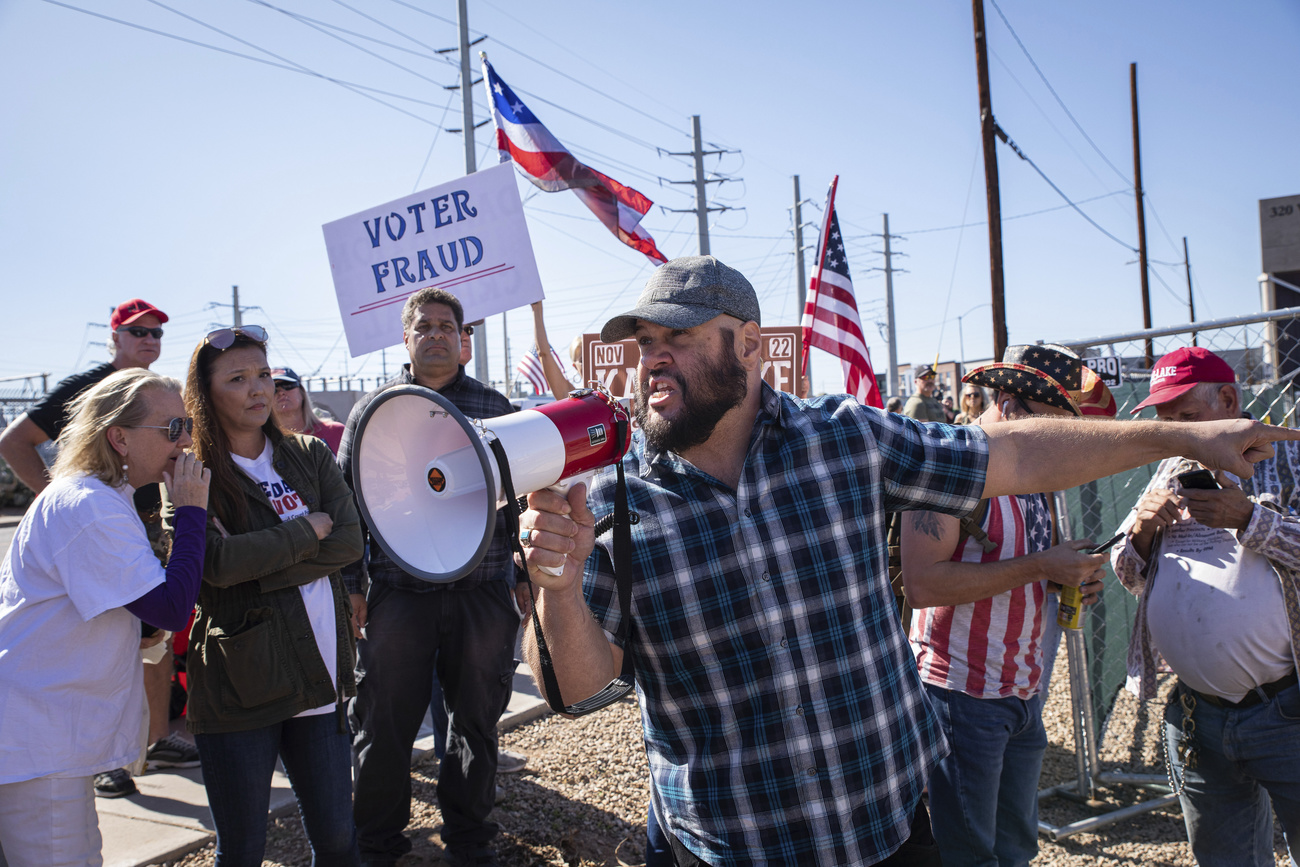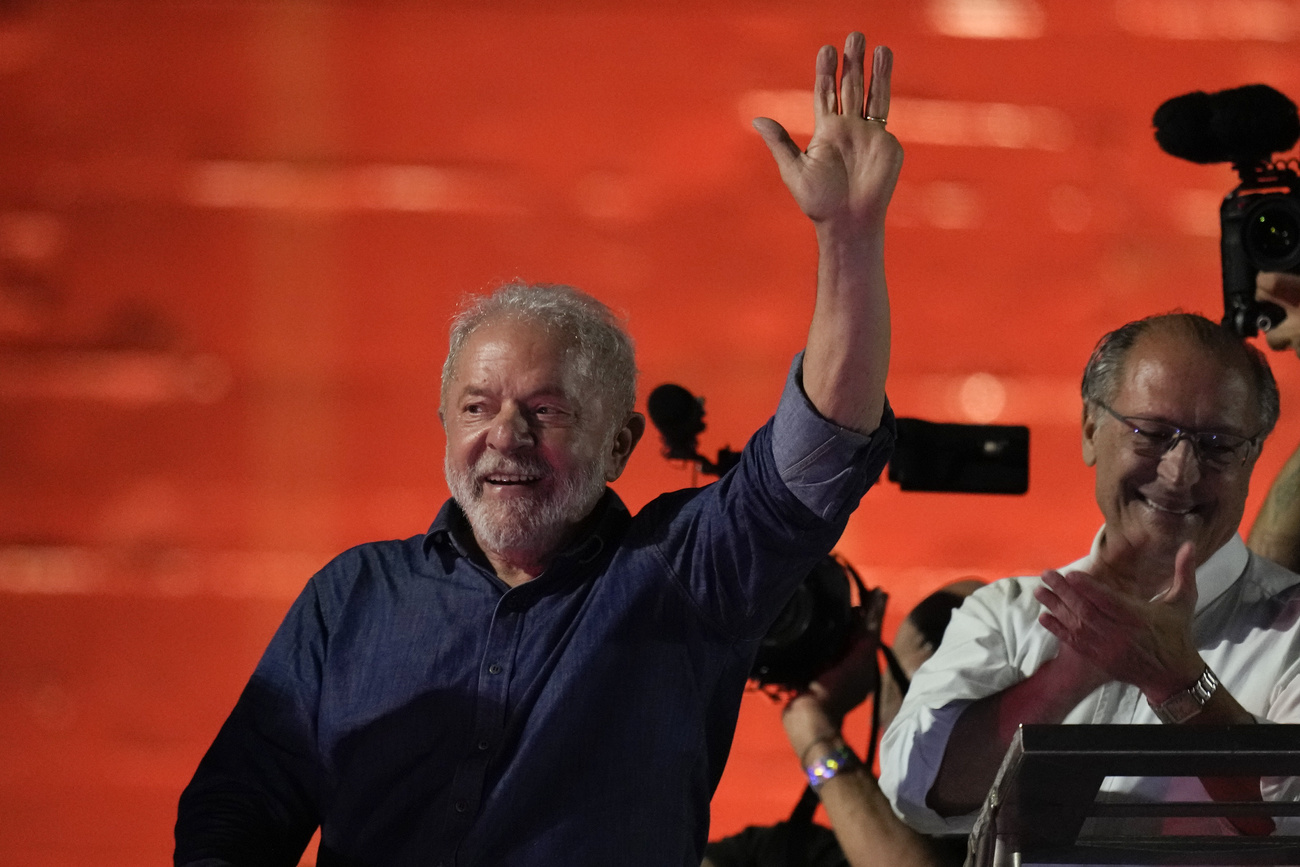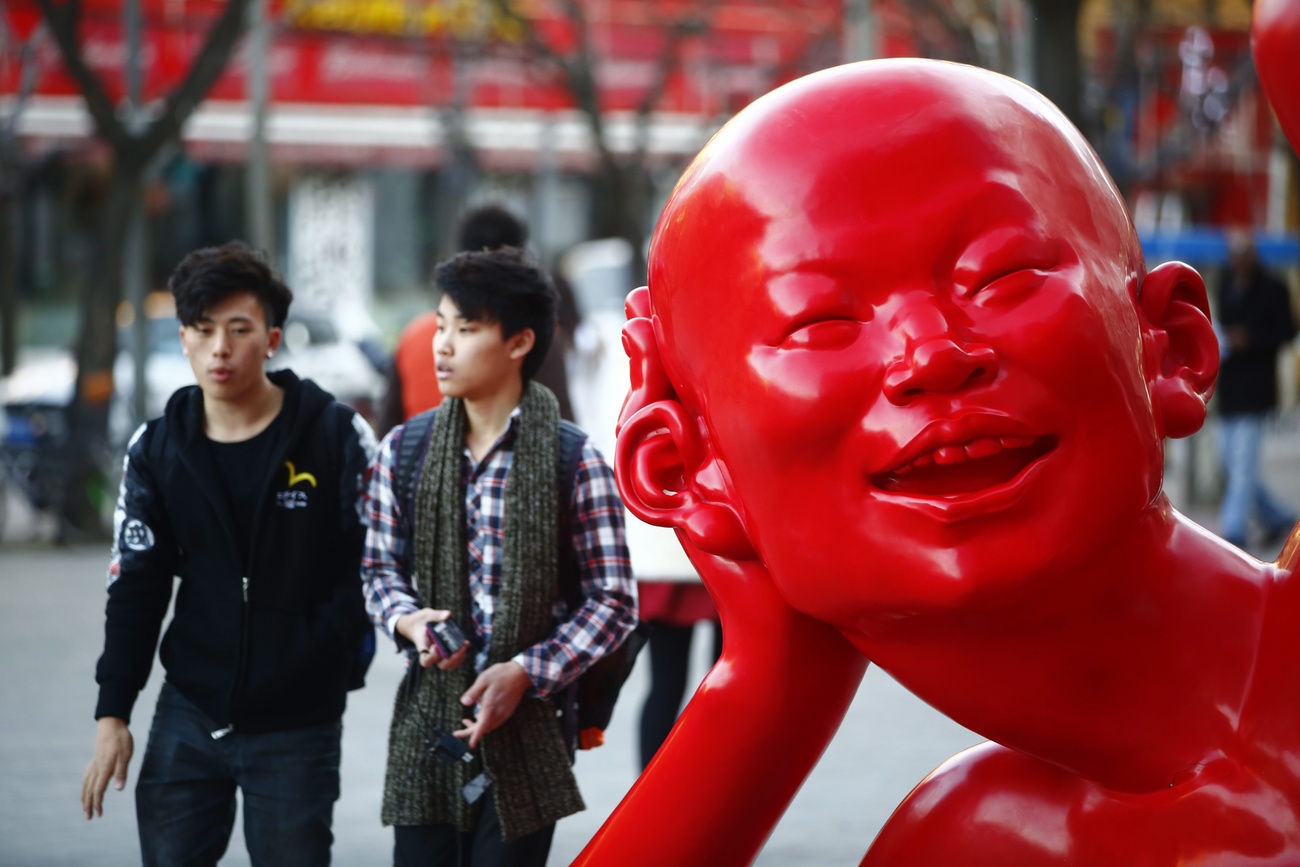Democracy Newsletter November 2022
Dear subscribers to the SWI Democracy Newsletter,
We are dealing with a fairly recent phenomenon: election denial. It amounts to doubting – in advance – the outcome of a correctly conducted election and voting process and showering the responsible electoral authorities with unsubstantiated complaints and accusations.
Former US President Donald Trump has written himself into the inglorious annals of democratic history as the top election denier. This already began with his election in 2016, which he won thanks to the special US electoral system. He wanted the 2,865,075 votes that his opponent Hillary Clinton had received more than him to be declared invalid.

Four years later – when Trump was more than seven million votes short of a majority and the so-called electors were far from enough – the president-elect tried to “find” the votes needed to overturn the election by calling election administrators, and finally described the election as “stolen”. Which he continues to do today.
Regardless of the disastrous consequences of this big lie – the storming of the Washington Capitol on January 6, 2021 – election and vote denial has spread beyond the US: even in Switzerland, before last year’s Covid referendums, Covid deniers and opponents of the government measures made outrider comments and the voting process was fundamentally challenged.
Now it is becoming clear that these attacks on the electoral system are slowly running out of steam. This was also the case in Brazil (where the president-elect had made such statements before the recent elections) and in the US in the recently held midterm elections. There, most of the Trump-backed election deniers failed.
Rick Hasen, a law professor at the University of Los Angeles, whom I interviewed for SWI swissinfo.ch in the run-up to the US elections, is pleased. “Most of the deniers didn’t make it into office, and the number of lawsuits against the results has dropped significantly compared to 2020,” he says. That’s good – even if the top election denier has entered the race for the US presidency again.
What is your take on this relatively new challenge to our modern democracies? Join our democracy debates – or get in touch with me directly.
With kind regards,
Bruno Kaufmann
Global democracy correspondent and coordinator of the SWI democracy editorial team

More
Can democracies resist rigged election theories?

More
Lula election ‘victory for Brazilian rainforest and indigenous people’

More
How participatory budgeting gives citizens a say in financial matters

More
How democracy features in local Chinese politics
More

In compliance with the JTI standards
More: SWI swissinfo.ch certified by the Journalism Trust Initiative









You can find an overview of ongoing debates with our journalists here . Please join us!
If you want to start a conversation about a topic raised in this article or want to report factual errors, email us at english@swissinfo.ch.